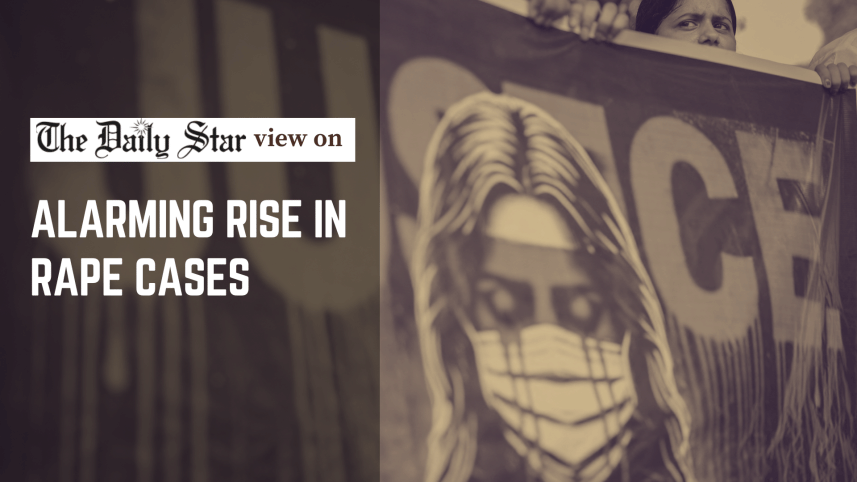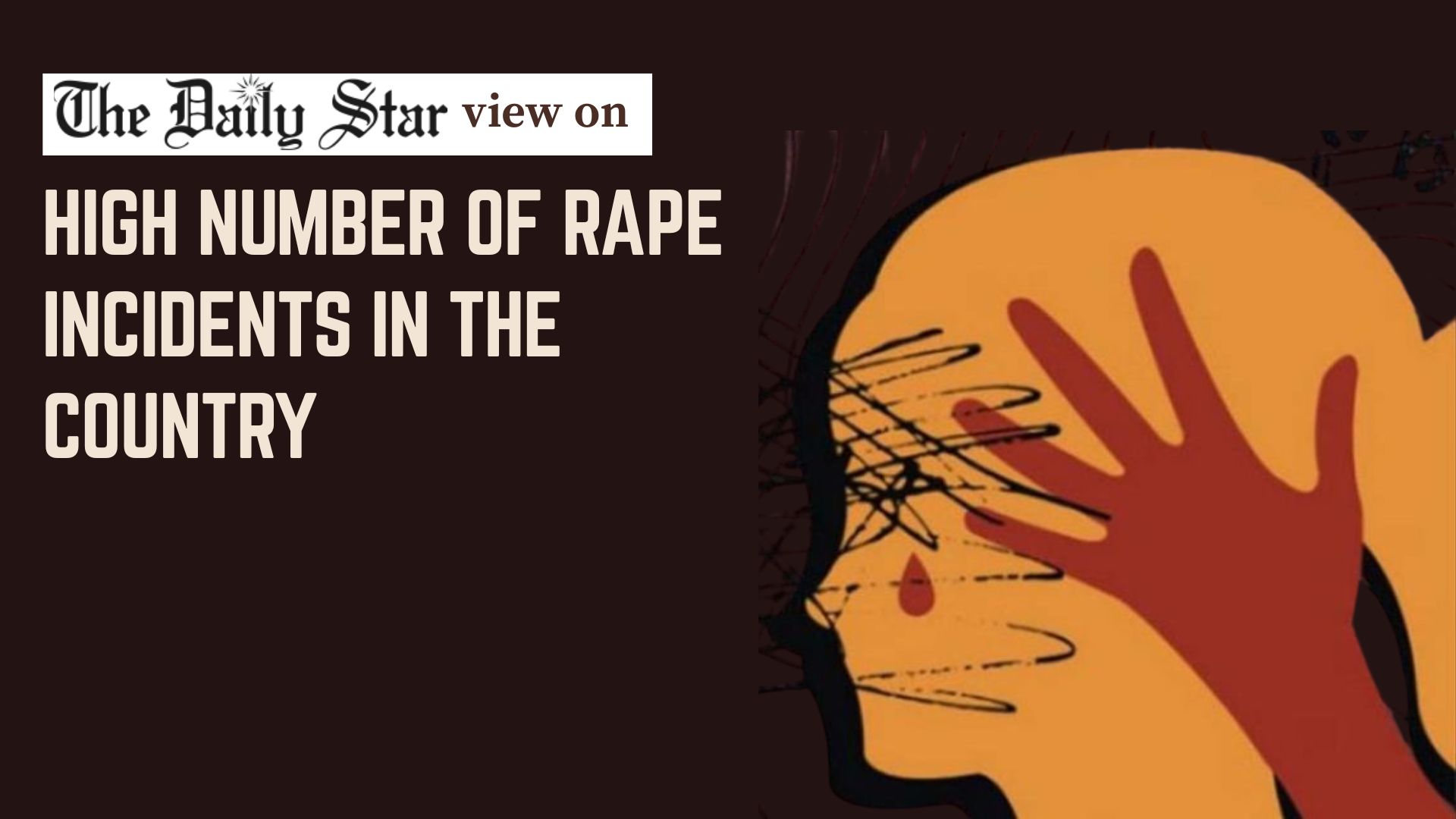The rising horror of sexual violence

Every year, the one statistic that strikes at the core of women's safety in Bangladesh is the ever-soaring number of rape cases. Within the first six months of this year, the number of reported rape cases reached 481, just 35 fewer than the total number of rape cases reported between January and December last year, according to Bangladesh Mahila Parishad data.
What is more concerning is that children were victims in almost 72 percent of the cases. Worse still, 106 of the 481 reported cases involved gang rape. When one reads these statistics alongside the incidents of rape in Muradnagar, Bhola, or Magura, the severity of the situation becomes even more apparent. The level of perversion displayed in many of these cases is beyond shocking. Moreover, the way these crimes are reported by the media and weaponised by certain quarters, including political parties, the way victims are vilified on social media platforms and put on trial in the people's court, raises serious questions about our collective sense of civility, ethics, and values.
Although the government has taken some steps to expedite the trial process in the Magura rape case, we do not see similar actions or urgency in many other cases. A recent report published in this daily revealed that 35,262 cases filed under the Women and Children Repression Prevention Act currently remain pending with courts across the country for over five years. The reasons behind the delay—which include incomplete police investigations, overburdened special tribunals, lack of dedicated prosecutors, and intimidation of witnesses and victims by the accused—culminate in creating a culture of impunity for perpetrators. There is also the tendency in our society to stigmatise the victims and blame them for the crime, instead of the rapist. That is why even a criminal offence like rape is often settled out of court, with victims often being married off to their rapists, subjecting the former to further trauma.
Under these circumstances, the government alone cannot deter sexual violence against women by enacting stricter laws. Proper implementation, institutional practice, and integrity are required to bring perpetrators to justice. Beyond that, we need to change our perception of rape and other sexual crimes. Society at large—and men in particular—must first see women as human beings with agency over their minds and bodies, not as objects. For this, education on equality and rights from the primary level is necessary. Traditional patriarchal practices must be challenged. However, nothing can be achieved unless all political and non-political stakeholders come on board to ensure the safety of women and children, without exception.



 For all latest news, follow The Daily Star's Google News channel.
For all latest news, follow The Daily Star's Google News channel. 

Comments